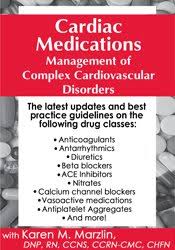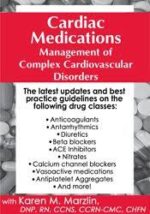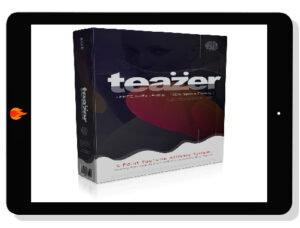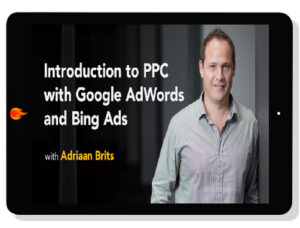Drawing from three decades of experience treating cardiology patients, Karen will provide you with cutting-edge information regarding the selection of particular cardiac medications
Karen M. Marzlin – Cardiac Medications
Hemodynamics and Shock
Physiological determinants of myocardial performance
Vasodilators
Vasopressors
Inotropes
Shock: Dopamine versus Norepinephrine
Nuances of decompensated heart failure
Risk Factor Optimization
Statin therapy in primary and secondary prevention
Other Antilipid agents: when to use what?
Outcome trials for lipid lowering agents
AIM High
Thrive
Drug choices in hypertension
Resistant hypertension
Atrial Fibrillation
Antiarrhythmic pharmacology for rate control
Antiarrhythmic pharmacology for rhythm control
Clinical implications of potassium channel blockers
Special considerations for Dronedarone and Amiodarone
Anticoagulant medication options
Fibrinolytics
Anticoagulants
Antiplatelets
Therapeutic Advances for Acute Coronary Syndrome
Prasugrel
Ticagrelor
Epleranone post-STEMI
Non-Steroidals
ASA and CABG
Contrast nephropathy
Heart Failure
Optimal loop diuretic / dose and route of administration
Nesiritide
OPTIMEÂ Trial
Serelaxin
RAASÂ drugs
Evidence-based beta blockers
Drugs not to give for systolic dysfunction
Pulling it All Together: A Patient-Centered Approach to Pharmacology and Prescribing
Would you like to receive Karen M. Marzlin – Cardiac Medications
?
Description:
Join Karen M. Marzlin, DNP, RN, CCNS, CCRN-CMC, CHFN, for an insightful and practical day focused on the common types of cardiac disorders that professionals like you see in your practice, and the medications currently used to treat them.
Drawing from three decades of experience treating cardiology patients, Karen will provide you with cutting-edge information regarding the selection of particular cardiac medications, the desired outcomes, potential side effects and drug interactions. Leave with a clear understanding of the physiological basis for cardiovascular drug therapy and drugs used to manipulate hemodynamic parameters, alter the cardiac electrical system, interrupt the clotting process, and to treat a variety of cardiovascular disease states.
Don’t miss this opportunity to keep pace with the ever-changing field of cardiac care, and through the information gained in this seminar, reduce the risk of potential adverse consequences for your patients. You will leave with a holistic perspective of cardiovascular pharmacology and its role in providing your patient with better outcomes and quality of life.
Here’s What You’ll Get in Karen M. Marzlin – Cardiac Medications








